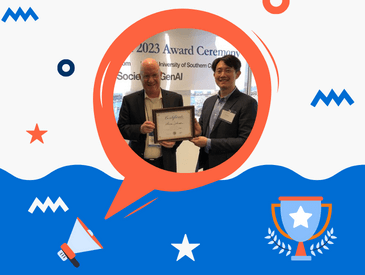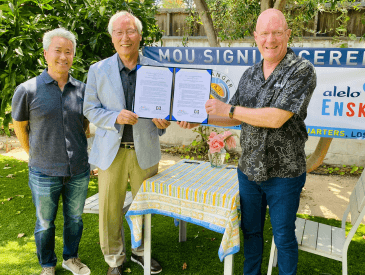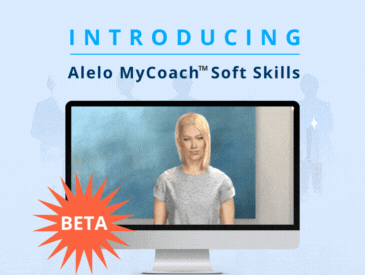
UMass Amherst received a grant from the U.S National Science Foundation (NSF) to hold a workshop October 19-25 that explores how artificial intelligence can be rapidly deployed in education within 3 years. The workshop brought together academic, commercial, and government experts to ideate and propose projects that would be funded by the U.S. National Science Foundation.
Alelo CEO Lewis Johnson PhD was invited to ideate and propose project topics in two of the five areas, or sub-tracks, selected for consideration. To participate, Johnson and other sub-track experts presented a Keynote Address followed by Q&A to the multidisciplinary team at the workshop. Each also submitted a 5-page rationale document for proposed projects along with a project abstract. Follow-up sessions evaluated all proposed ideas and a final report has now been developed.
The report proposes ways to dramatically increase the development, access, and use of AI technology in education while stressing convergence and collaboration:
- Target urgent societal needs (e.g., personalized learning, learning loss, data security, socioethical considerations);
- Encourage high levels of collaboration and convergence among researchers;
- Compile data and research from users, supporters, and researchers;
- Search and analyze the full range of tools using AI technology (data mining, natural language processing, machine learning, social analytics, etc.);
- Engage the full range of stakeholders including educators, researchers, industry leaders, government officials, and public workers;
- Facilitate collaboration and convergence for new directions that could not otherwise be accomplished in the current research paradigm;
- Encourage development of policies and standards for applications development that target societal needs that research interests on their own would not likely address (e.g., diversity, equity, inclusion, learning loss, etc.).
Other outcomes include:
- Scaling up AI-based tutoring to personalize student learning
- Using immersive simulations to assess worker performance and teach new skills
- Enabling hybrid learning through infrastructure, tools, and training
- Accessing learner data that can predict correct responses rather than simply identify them
One proposed outcome includes a Library Hub that acts as an intermediary between the users of technology or research and the providers of it. It would show reliability, validity, and salient statistics collected on products, e.g., a rating system for each product. According to the report, products with more stars would likely survive and flourish while others with fewer stars would not.
If through the proposed report, the multidisciplinary team can demonstrate that they are prepared to address compelling needs in education with technology and know-how, then a funding track will be created through the NSF-supported Convergence Accelerator program.
“This is a unique opportunity for Alelo,” said Johnson. “If a Convergence Accelerator funding track is created, Alelo will be ready to participate.”
Launched in 2019, the Convergence Accelerator — a Directorate for Technology, Innovation and Partnerships, or TIP, program — builds upon the NSF’s investment in basic research and discovery to accelerate solutions toward societal and economic impact. Convergence Accelerator multidisciplinary teams use convergence research fundamentals and innovation processes to stimulate innovative idea sharing and development of sustainable solutions. Past Convergence Accelerator projects have received investments of more than $50M.


